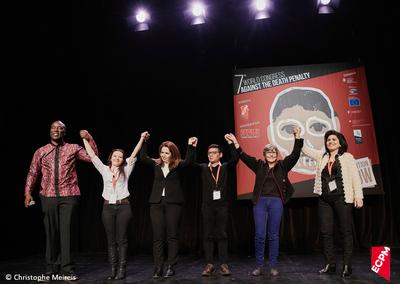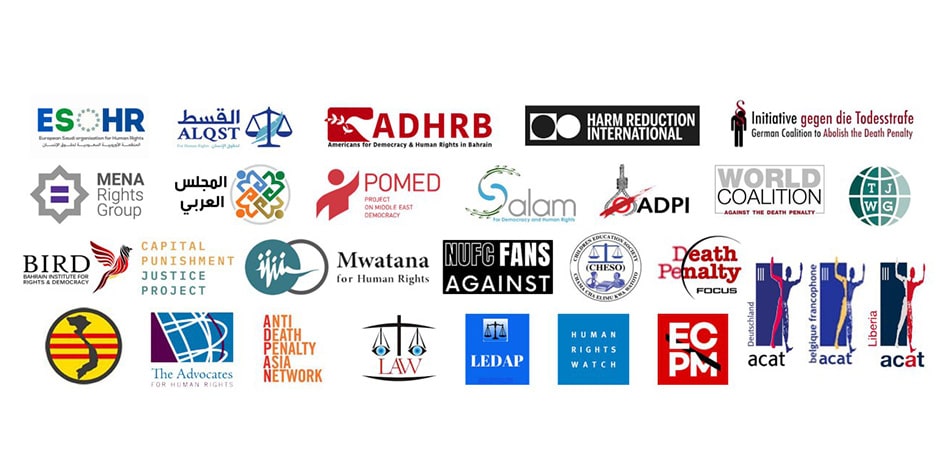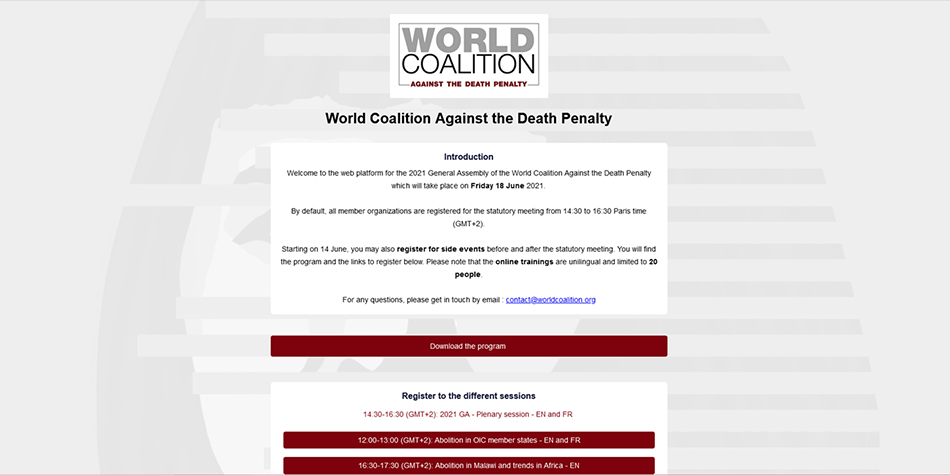
7th World Congress – The rights of children of parents sentenced to death
World Congress
On 10 October, the World Coalition will celebrate the 17th edition of the World Day against the Death Penalty, devoted to the rights of children of parents sentenced to death or executed. On November 20, we will all celebrate the 30th anniversary of the International Convention on the Rights of the Child (1989). How can the abolitionist movement address the twin issues of the right to life and the right of children? Let’s look back at the reflections conducted during the World Congress against the Death Penalty.
The death penalty never sentences only one individual
Driven by a strong desire for revenge, the death penalty deeply affects the lives of the sentencedperson’s immediate family, first and foremost their children. This was the conclusion of the workshop on death row prisoners and their families and the witness evening. Innocent and yet sentenced to carry a heavy burden based on their family lines alone the children of death row inmates see their lives turned upside down. Sabine Atlaoui whose husband, Serge Atlaoui, is currently waiting on death row in Indonesia, gave poignant testimony to the World Coalition’s working group in charge of 17th World Day. Their son, born during Serge Atlaoui’s detention, faces questions from his classmates in France and the propaganda broadcast in Indonesia against his father. Threatened, stigmatized and discriminated against, these children are excluded from the rest of society and their fundamental rights are violated. Hedad Bentaoui and her children fled Saudi Arabia where her husband Raef Bentoui was convicted and sentenced for committing, according to the regime, a crime of apostasy. Hedad’s children in Canada have only fragmentary information about their father, whose sentence has been commuted to a prison sentence and 1000 lashes, with a 10-year ban on leaving the country. The conviction of a parent, the waiting, the retribution that can be sought following the crime, and the occasional secrecy surrounding the execution and place of burial, constitute a real torture that denies childrentheir right to health and to be protected from mental trauma. As a side effect, their right to an education is often impaired, a right which serves as a basis for many others to follow.
Acting for the rights of all children
The Human Rights Committee or the Committee on the Rights of the Child encourage the remaining retentionist States to reduce the use of the death penalty, taking into account in particular its impact on children. In the name of the best interests of the child, which are enshrined not only in the International Convention on the Rights of the Child but also in the conclusions of various international and regional human rights institutions, major reforms are necessary. For years, the Quaker United Nations Office, a party to the World Congress, has been working to promote children’s rights. Their latest report “Protection of the Rights of Children of Parents Sentenced to Death or Executed: An Expert Legal Analysis”, provides a high-level analysis of children’s rights in international human rights law. And to remember that beyond infringements of their right, the death penalty compromises their well-being. Their previous report, entitled “Children of sentenced or executed parents”, explores this avenue further. In addition to maintaining calls for the universal and unconditional abolition of the death penalty, it is crucial, for example, to better train prison staff, school educators, and provide social services with the means to better care for children.
10th October: Actions to develop together
The World Day relays the work of various abolitionist organizations around the world to denounce the unacceptable situation of children whose parents sentenced to death or executed. While the number of retentionist countries is now only a small minority, this year as in previous years, collective mobilization is decisive. There is an urgent need to jointly explore new avenues for action at the international, national or local level. The 10th October will be a unique opportunity to bring together everyone’s initiatives and demonstrate everyone’s commitment to the right to life.
Photo credits: Christophe Meiris
Categories
Juveniles






